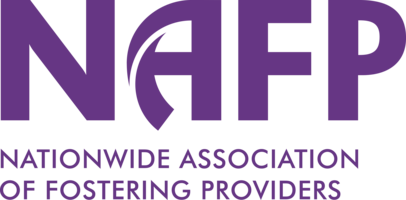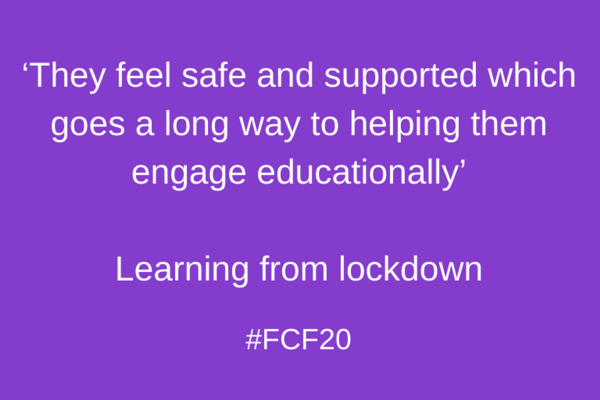Lockdown has created unprecedented challenges for fostering, the effect which will last beyond the current pandemic. Going forward, these challenges will be made more complex by new and emerging risks and difficulties associated with the easing of lockdown.This webinar examined some of the challenges and their impact in practice, suggesting helpful ways of safeguarding children and families as we move out of lockdown. Guest speakers included a PSW National Research Lead, Chair of PSW, Executive Director of Social Work England and Ofsted’s National Director.
As we increase face to face meetings we need to prepare carers, children and employee’s with protective measures. I would recommend a staged continuity plan which will evidence the work of fostering and how each individual task is being considered in an action plan - highlighting the task, the staged method and timescale. Discussion points from the webinar...
Offices and remote working -
-
Consideration of which roles need to be office based, and who can be in the office less often
-
Ethical duties to children, carers and staff
-
What is the impact to the emotional well-being of staff when working from home for such significant periods of time?
-
Being at home challenges staff who struggle to switch between home and work life. Being able to switch off electrical devices, having clear separation between home and work is essential for mental health
-
Agencies need to consider the benefits of being visible, the importance of diversity, inclusion and effective approachable leadership.
Discussion was had in relation to the importance of the “journey home from work” - how it gives time to debrief, “unpack”, and most of us use this opportunity to offload. Technology is powerful, but it does not promote natural relationships that we often take for granted through face to face working.
Empathetic leadership - this is required to ensure staff and carers are heard, and do not suffer from burnout and fatigue. There is likely to be increased professional anxiety that will require containing. Agencies will need to “learn to ride the waves”, to manage the well-being of staff, carers and children. This will require a systematic, relationship based approach. Advice is to look at the services holistically ahead of the curve, ensuring that we protect children, be child focused, and listen to them as change develops.
Workforce planning - we need to consider increased disclosures, allegations of harm that will become evident on children returning to school, and also when Local authorities are assessing families where they have been isolated, without services, limited resources and funds, through unemployment etc. Evidence is showing an increase in domestic abuse all of which will inevitably increase demand for services, more court work, more referrals to therapeutic services, such as CAMHS, more requests for fostering services. Speakers talked of a “bottle neck”, increased waiting time and more crisis led reactions. How can you as an agency start to plan for the months ahead, to ensure you have the right resources, including carers and staff to meet demand? Here are some thoughts...
-
Adopt, adapt, innovate
-
What has been working through lockdown?
-
What needs to change?
-
What do you need more or less of?
-
What have you learnt?
-
Listen to feedback from children and carers
-
Triangulating data - sharing amongst professionals will support the work we do
-
What are the benefits and challenges going forward?
-
Consider new trends and themes - how can you capture the experience of staff, carers, children to ensure the organisation is prepared for the “new normal”? This will set new behavioural patterns.
-
How can you consider national and more local data to examine predicted areas of need?
Ofsted - feedback from Ofsted included how agencies consider a relationship based approach, suggesting using the Ofsted tools to help accelerate the process. Create an environment for social work to flourish. Identify your vulnerabilities and risks and revisit the areas that have been less robust. Further discussion was had in relation to hidden harm, “out of sight”, self-reported practice. Ofsted also reported a steady flow of abuse and neglect - more shaken baby syndrome, the worry of families closed off, babies being born within this lockdown period and the isolation. This also confirms the risks of young parents as there has been an increase in Parent and Child referrals within the sector. Ofsted added the loss of jobs, children at home with complexities, and the pressures on residential children’s provision are all contributing to increased risk. Ofsted also talked of their “assurance visits” - a journey to recovery without the formal trappings of the Ofsted grade. The assurance visit will be following the same framework for inspection but with questions in relation to how the workforce, children and their carers have managed during the lockdown. The visits are to provide assurance to agencies, but also an assurance that children, caregivers and staff have been fully supported.
BAME - how we consider support to communities, assertive outreach and lessons to learn in relation to increased risks around COVID.
Social media - positive messages from Ofsted in relation to how older children have engaged more, but less so for younger children. Reports from Ofsted in how carers and families have felt freed of external influences. Also how agencies consider children's emotional needs as they return to school. The likelihood of feeling like a “loss” from their caregivers, time at home being described as like “Theraplay” particularly for younger children.
Early evidence is showing a decrease in county lines, gang activity and reduction in drug supply and drug related crime, but an increase in anti-social behaviours as young people are returning to the community. However, Dr Peter Buzzi (PSW research lead) talked of the likelihood of increased gang culture as there are new risks and opportunities for criminals to recruit children online, or as they are going out to parks and recreational areas. Will there be increased vulnerability of our care leavers, less opportunities for them, and as lock down lessens increased vulnerability as they have “itchy feet” to return to their lifestyles and friendship groups, possibly be at risk of being recruited to organised crime?
Social Work England (SWE) agrees that there needs to be consideration in relation to the hidden harm and the spike in referrals to services such as fostering and how the well-being of staff and carers are considered. SWE has a regional engagement team, raising awareness within social work, the national advisory group is in place to challenge thinking. This includes raised standards for admissions for entry into social work. How we can, as a profession, develop competence and confidence. How the Continued Professional Development (CPD) is essential and fundamental to improve practice and advancement in social work.
This first year has seen registration of Social Workers across England and the requirement to upload a piece of CPD, and how this has impacted on practice. They talked of how it would be helpful to capture any learning within COVID, how it improved or impacted, whether mistakes had been made, and how they have been rectified which demonstrates ongoing fitness to practice.
Questions were asked in relation to advanced training for managers, advanced practitioners and those in complex roles. SWE is considering the training and development from those in ASYE through to pre-retirement and advanced practice or leadership. Early discussion includes how we can ensure our social work students that have been affected by early end of placements etc are given additional learning opportunities within an extended period of AYSE. Challenging times ahead for our profession, but, early planning, analysis and reflection will help focus the hard times ahead - there is opportunity to reframe and consider how your organisation is planning, being creative and proactive in preparing for the end of lockdown.








